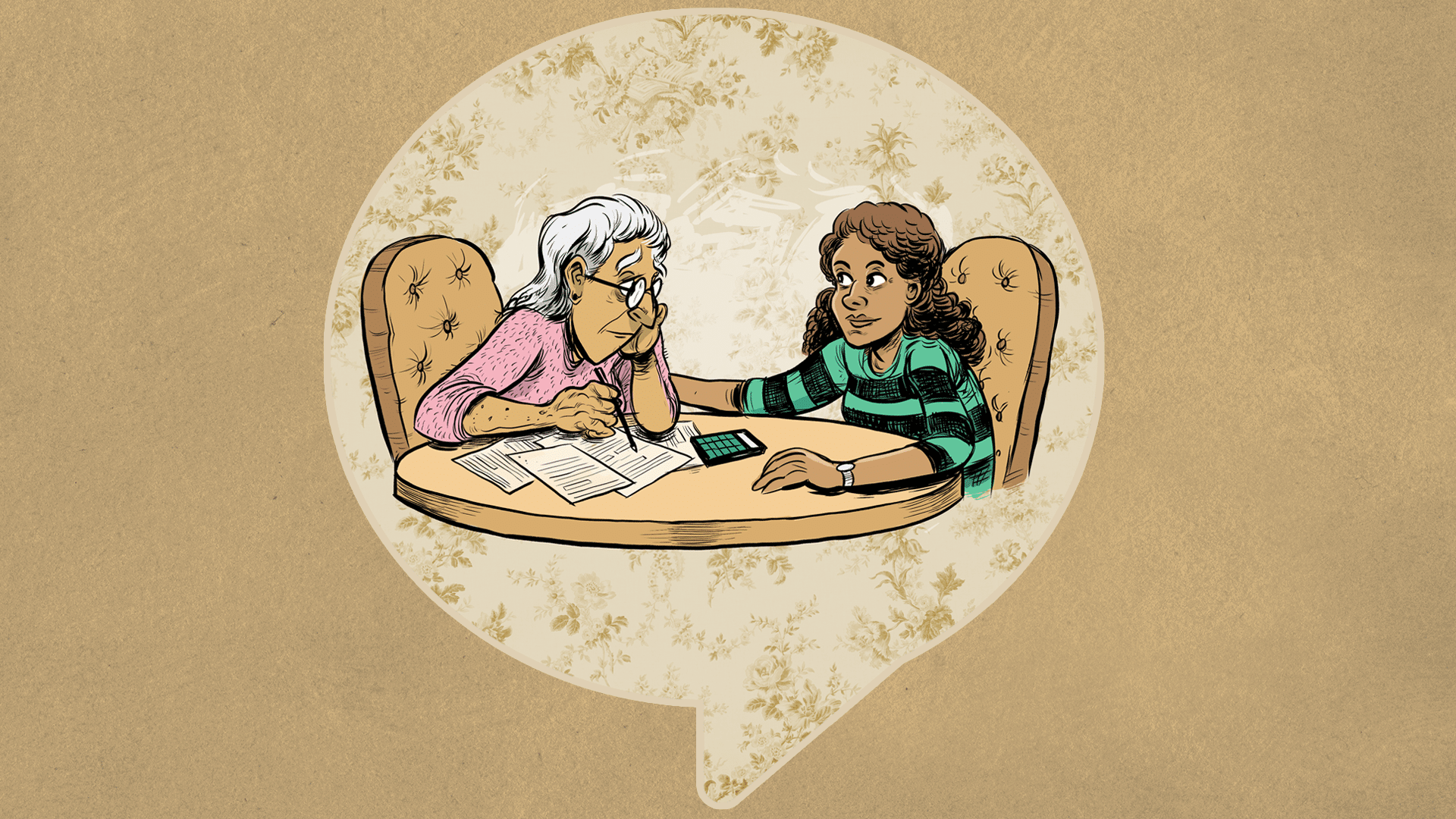
Dos and Don’ts: The argument-free guide to discussing money…with anyone
Ready to talk money? Whether you’re looking to discuss finances with a family member, child, partner or boss, here are some ways you can keep the conversation peaceful and productive.
It began with a late paycheque. But there were also times when her employer would conveniently forget to compensate her for out-of-pocket expenses. That’s when Andrea knew it was time for her to have a chat with her employer. About money.
“It was insanely uncomfortable,” she recalls. “I felt like my worth was being undermined. I knew we had to have a conversation about it, and I dreaded it.”
Andrea found the courage to bring it up. “I explained how it wasn’t financially wise for me to continue on with this job unless I was being compensated. They corrected this for a short time but then went back to not paying me again, so I quit.”
Even though things didn’t have a perfect happy ending for Andrea, the experience did teach her some lessons about discussing money. It reinforced why it’s important to do it, even when it can be a sensitive subject. Standing up for herself helped her feel strong and assertive, and she knows it will be easier the next time.
If the idea of discussing money with someone in your life gives you chills — whether it’s a partner, a parent, an employer or a friend — rest assured, it may be less painful than you fear. Talking about money can bring up a range of emotions such as embarrassment or anger, and it can make us feel not good enough and judged.
However, sometimes not talking about money can have negative consequences on our wealth, our health, and our happiness. Does having a money talk feel awkward to you? We spoke to Dr. Amanda Beaman, a Clinical Psychologist with MedCan, a private Toronto-based health clinic who offered some ways to take the stigma out of your next money discussion.
Do: Put it in the calendar
When you give someone a heads up that there’s an issue that needs addressing, you give them a chance to come to the conversation prepared, and this may lead to a less emotional and more constructive discussion. “This is a tenet of effective communication,” says Beaman. “When it happens in the moment without forethought, we may be in danger of saying something in a way that triggers the other person or vice versa.”
Do: Tackle one issue at a time
Maybe the problem is bigger than just one issue, such as a partner who tends to spend more than they earn. Beaman says that knowing you don’t need to fix everything in the next hour can give you some breathing space. “Finances can be a big and complex topic,” says Beaman. “This fact can lead to it becoming overwhelming quickly. Break it down into bite-size chunks that are more manageable.”
Do: Seek to understand another person’s values around money
Everyone has a different view on money, and some perspectives may be deeply felt and personal, or even cultural. That annoying habit your friend has of skipping on the tip when you go out to eat — it might have a reason behind it and, believe it or not, it may be a good one. Beaman suggests asking why: “When we bring a curious attitude to our conversations, we are less likely to judge, and it opens the door to understanding.”
Do: Take a break if you get emotional
It’s understandable for emotions to rise when talking about money but getting upset can make it more difficult to stay focused on having a productive conversation. When that happens, it can be a good time to take a break and come back to the conversation a few hours later. “Be mindful of how you are feeling and when you notice physical signs of becoming emotional,” says Beaman. “Writing down your thoughts close to the moment can help you identify what led you to become overwhelmed.”
Don’t: Avoid the topic
It’s common for people to avoid discussing financial problems until it’s too late and resentment has set in. For many, our avoidance may be rooted in a fear of appearing weak or being judged. “If you are finding the topic of money difficult to approach, perhaps start with a small step such as setting up a meeting with an advisor or friend,” says Beaman. “As you take more small steps, you will build greater understanding and confidence to take on bigger steps.”
Don’t: Focus on things you can’t control
Focusing on things you can’t change — such as the past or financial markets — may only lead to negative emotions. “It wastes time and energy, and takes us further away from finding productive solutions to the issues at hand,” Beaman says. “When you notice that your conversational partner is focusing on things outside of their control, try gently acknowledging their emotions and redirect them to things that are within their control.”
Don’t: Make assumptions
“In mindfulness we use the expression ‘beginners mind,'” says Beaman. “This is the practice of coming to interactions with others with an attitude of a beginner, who assumes not to ‘know’ everything about the other person, but is curious to find out who they are and why they hold their values.” When we make assumptions about others it can lead to misunderstandings and judging. For example, we might assume that because someone appears wealthy, they don’t feel stressed about their finances, which might not be the case. The key is to rid your mind of preconceived notions about your conversation partner, ask questions and listen carefully.
Don’t: Bring blame or shame
Beaman says managing money comes with many ups and downs and is seldom an area of expertise for people. After all, she says, the pervasive silence around money may be one reason people weren’t taught how to manage it. “Accept that making mistakes is a part of the process of becoming more financially literate,” says Beaman. “Showing compassion to people or ourselves for mistakes will lead to less defensiveness and to productive solutions more quickly.”
These suggestions may make it easier to have friendly, no-pressure conversations about money, but if you are still feeling apprehensive, a conversation with a financial advisor may help you to gain some additional perspective.
DENISE O'CONNELL
MONEYTALK LIFE
ILLUSTRATION
VERONICA PARK
















